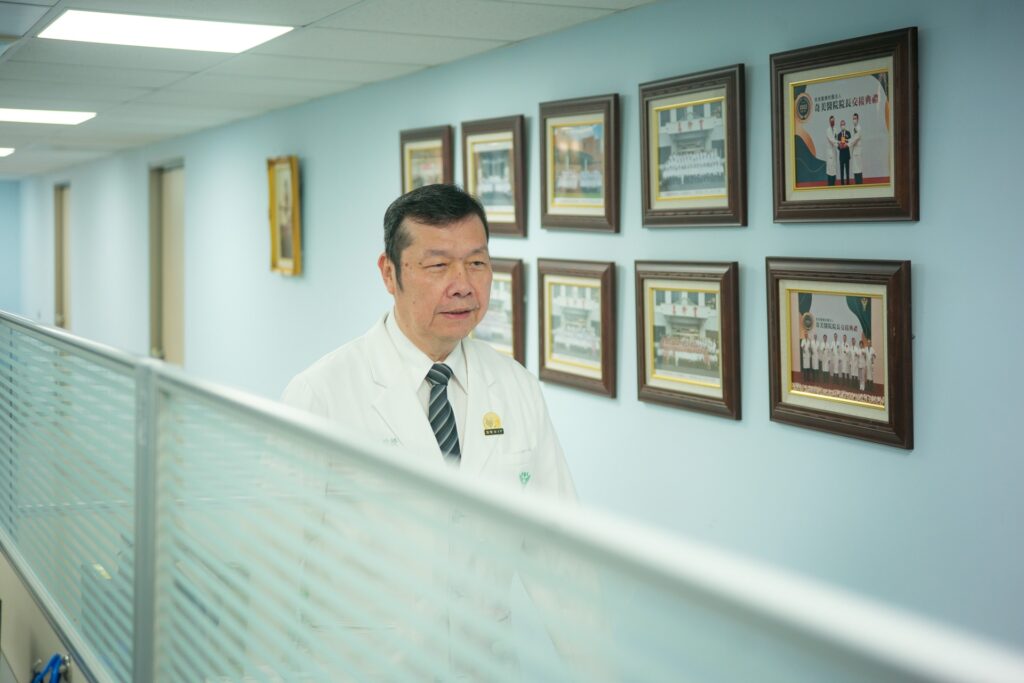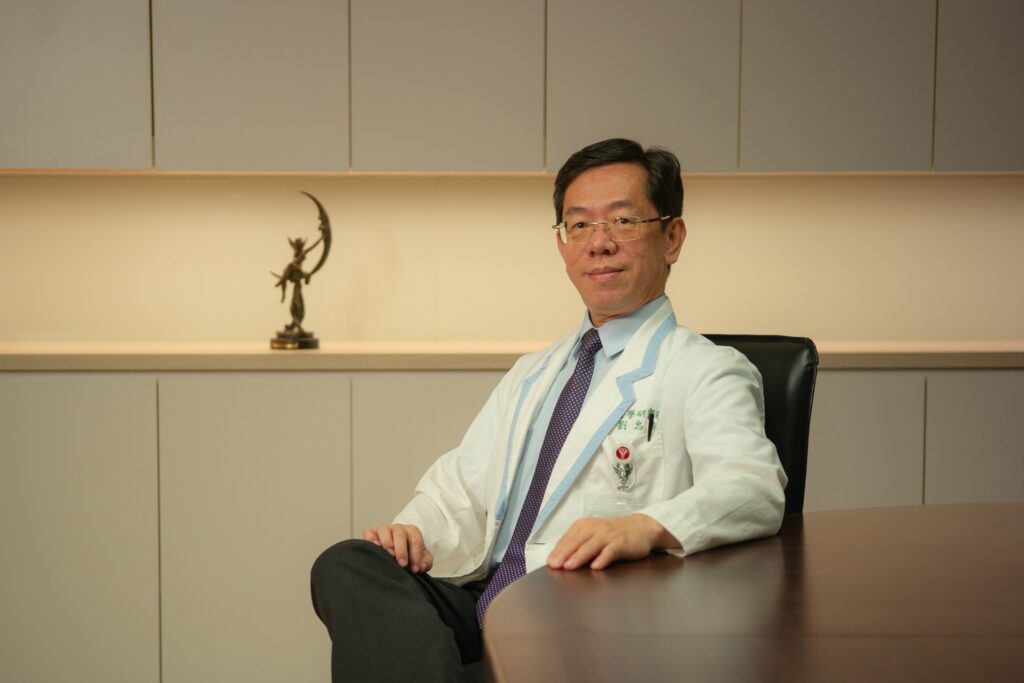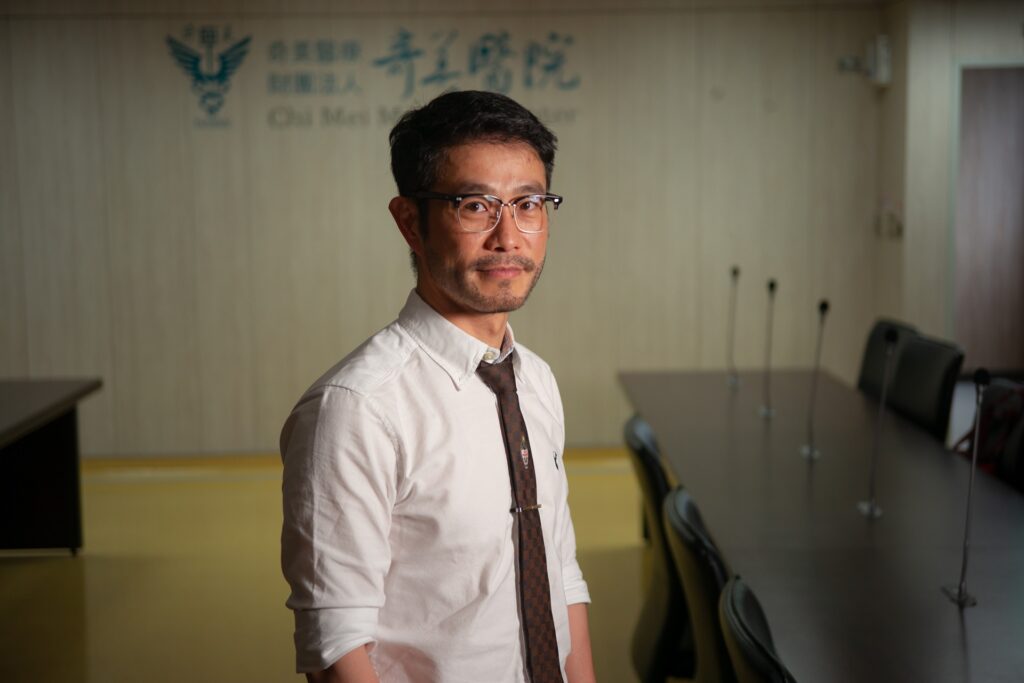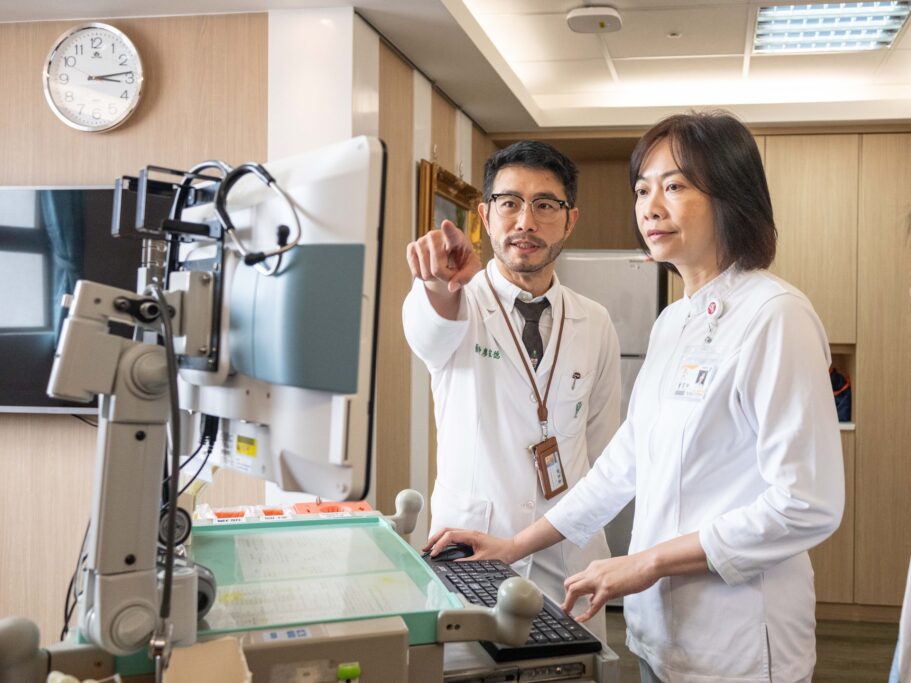TAINAN, Taiwan – It’s a usually busy afternoon at Chi Mei Medical Middle’s pharmacy division on this southern Taiwanese metropolis. Employees in white coats work shortly, packing bottles and pill strips, prepared for the strains of sufferers ready on the opposite aspect of the counter.
Since April, the pharmacists have been getting some assist from a generative AI assistant, or copilot, constructed with Microsoft’s Azure OpenAI Service.
One click on on the A+ Pharmacy copilot button on a display brings up a affected person’s scientific info, summarized from a number of databases on a single interface – treatment lists, surgical data, allergy historical past, lab checks in addition to nursing, medical and surgical data, together with a affected person’s ID quantity, mattress quantity and analysis.
One tab flags harmful drug interactions. A pharmacist also can click on on {a photograph} of a selected treatment to see if it’s coated by insurance coverage earlier than prescribing the drug.
“The design logic matches how pharmacists work,” mentioned division head Hui-Chen Su.
Su mentioned time saved with the copilot means one pharmacist can now see 30 sufferers a day, up from 15. It additionally “permits pharmacists extra time to look after sufferers with advanced wants,” she added.
Chi Mei pharmacists have rated the copilot 4 to 5 stars out of a most of 5 stars.
It’s only one instance of how hospitals are beginning to use generative AI to assist Taiwan’s chronically overstretched well being care employees do their jobs. AI in medical settings has been round for a number of years, significantly in imaging. This new wave goals to chop down mountains of paperwork – whether or not it’s retrieving info from a number of inside databases, summarizing and producing medical experiences or offering affected person training supplies.
Since November 2023, the two,500-bed Chi Mei Medical Middle has rolled out a number of copilots. Medical doctors use one to generate medical experiences from admission and progress notes, saving time. Nurses use a unique copilot to supply experiences for shift adjustments and mattress transfers. Nutritionists use a copilot to supply dietary suggestions. In Might alone, copilots had been used roughly 36,000 instances by 3,500 particular person customers.
“We discovered it cannot solely scale back workload but additionally assist guarantee affected person security,” mentioned Dr Hung-Jung Lin, chief govt of Chi Mei. “Sooner or later, we plan to provide every medical skilled a digital assistant.”
It’s early days and the hospitals don’t but have onerous information on influence, however a preliminary survey of some 20 nurses at Chi Mei confirmed burnout scores falling after the copilot was launched.

Well being employee scarcity
Whereas there’s a scarcity of well being employees globally, the issue is especially acute in Taiwan.
“In Taiwan, with an ageing inhabitants and low beginning price, the most important problem is a scarcity of manpower,” mentioned Lin. Worse, “after the pandemic, fewer and fewer needed to enter the medical occupation.”
Taiwan well being care is taken into account among the many greatest on the planet, with a single-payer system run by the federal government that’s much like programs within the U.Ok. and Canada. Sufferers can select any physician or hospital as typically as they like. Actually, Taiwanese see a health care provider greater than 12 instances a 12 months, double the typical of 5.7 visits in nations which can be members of the Group for Financial Cooperation and Improvement (OECD), made up of principally high-income nations .
But Taiwan has solely two medical doctors per 1,000 folks versus the OECD common of three.6, and seven.6 nurses per 1,000 folks versus the OECD common of 8.9, in line with Taiwan’s Ministry of Well being and Welfare and OECD information.
Well being care employees are stretched to the restrict. Medical doctors in Taiwan hospitals work, on common, 69 hours every week, far above the 50 hours they’re scheduled for, in line with a 2018 survey.
So when generative AI hit the scene final 12 months, hospital directors shortly noticed alternatives.
Generative AI instruments, constructed on giant language fashions (LLMs) that synthesize troves of information to generate textual content, code, photographs and extra, are seen as the most important technological leap because the net browser and the good telephone. Now companies, universities, governments, hospitals and different organizations are experimenting with including their very own proprietary information and area experience to create copilots for particular functions.
Getting buy-in
Chi Mei, a nonprofit medical middle with three hospitals, is owned by the charitable basis of CHIMEI Corp., a plastics and chemical substances producer. Chi Mei was an early proponent of digital know-how, going again to its adoption of digital medical data in 1995.
In 2019, it opened an Clever Healthcare Middle to work on predictive AI fashions in-house. Through the 2020 pandemic, for instance, the middle developed fashions to foretell which COVID-19 sufferers would require a ventilator, based mostly on their very important indicators, and in addition how shortly a affected person may very well be weaned off a ventilator, mentioned Chung-Feng Liu, the middle’s director and a professor of data administration.

In 2022, the Clever Healthcare Middle started utilizing Microsoft 365 and Energy BI for administration and for analyzing hospital information, together with benchmarking high quality. When Microsoft Azure OpenAI Service was launched final 12 months, they built-in the hospital’s varied databases with the generative AI platform, which promised safety for delicate affected person information in addition to the hospital’s proprietary protocols.
Chi Mei rolled out a collection of copilots beginning in November 2023, all with the prefix A+. Apart from A+ Physician, A+ Nurse, A+ Pharmacist and A+ Nutritionist, there’s additionally the A+ Affected person Security copilot, which identifies sufferers vulnerable to falls by key phrases corresponding to “mattress sores” or “low blood stress,” and recommends additional security measures. Arising: an A+ Nationwide Examination Evaluate copilot to assist medical doctors examine for ongoing training wanted to maintain their licenses.
Medical doctors who used to spend an hour writing a medical report can now generate one based mostly on their notes, overview and edit it and click on “verify” in quarter-hour, mentioned Dr Chia-Te Liao, a heart specialist who’s director of Chi Mei’s Middle for Proof-Based mostly Drugs and Well being Coverage.
The copilots also can generate personalised training supplies for sufferers with a number of circumstances, quite than handing out generic brochures on every situation.
Liao, who represented medical doctors, and Liu, who represented technologists, labored collectively to get buy-in, inviting medical doctors, nurses and others to assist design the copilots in line with their workflow.
There was some early resistance. Liao recalled some medical doctors declaring: “I don’t want AI. I’m a health care provider.”

Nurses initially feared the copilot would make them redundant. Liao mentioned hospital leaders needed to name a gathering to allay their fears.
“The CEO reassured nurses the copilot is meant to help and never substitute them. However we hope you’ll be able to go away the hospital on time and save your time for your self and your loved ones,” Liao mentioned.
Finetuning and surprises
Right this moment, two-thirds of Chi Mei’s 95 pharmacists are utilizing a copilot, half of some 2,000 nurses and about one-third of a complete of 700 medical doctors. Two-thirds of the middle’s 20 nutritionists are additionally utilizing a copilot.
Whereas all copilots are constructed on Azure OpenAI Service, the GPT mannequin – or model of LLM – they use will depend on the wants. For instance, residents are utilizing GPT-3.5, whereas physicians are utilizing the extra superior GPT-4 for reviewing medical data.
Nurses report that their copilot has diminished the time wanted to doc mattress transfers, together with medical doctors’ directions, admissions notes, examination outcomes and extra – from between 10 and 20 minutes to below 5 minutes.
“This timesaving permits us to spend extra high quality time with sufferers at their bedsides,” mentioned Yu-Chen Tung, a nurse at Chi Mei.

Chi Mei is engaged on bettering the copilot, significantly in language. At instances, it wrongly makes use of a layperson’s time period quite than a medical skilled’s. Nurses then edit as wanted throughout critiques. Nurses have rated the copilot three to 4 stars on common, Tung mentioned.
Up to now, language has been the most important grievance from customers, mentioned Liao.
For instance, the copilots generally slip in a simplified Chinese language character as an alternative of the standard script used right here. One other grievance, mentioned Liao, is that the experiences look an excessive amount of like they had been written by AI.
General, nevertheless, “we discovered AI carried out past our expectations,” mentioned Lin, Chi Mei’s chief govt.
And by compiling info from fragmented databases in a single place – not simply medical data but additionally issues like financial and household background from social employee experiences, “issues medical doctors often fail to notice” – generative AI additionally, Lin mentioned, “reminds us professionals to indicate empathy.”
High picture: Hui-Chen Su, Director of the pharmacy division of Chi Mei Medical Centre, says a copilot has helped pharmacists work quicker by pulling collectively affected person info from completely different databases onto one interface. Picture by Billy H.C. Kwok for Microsoft.